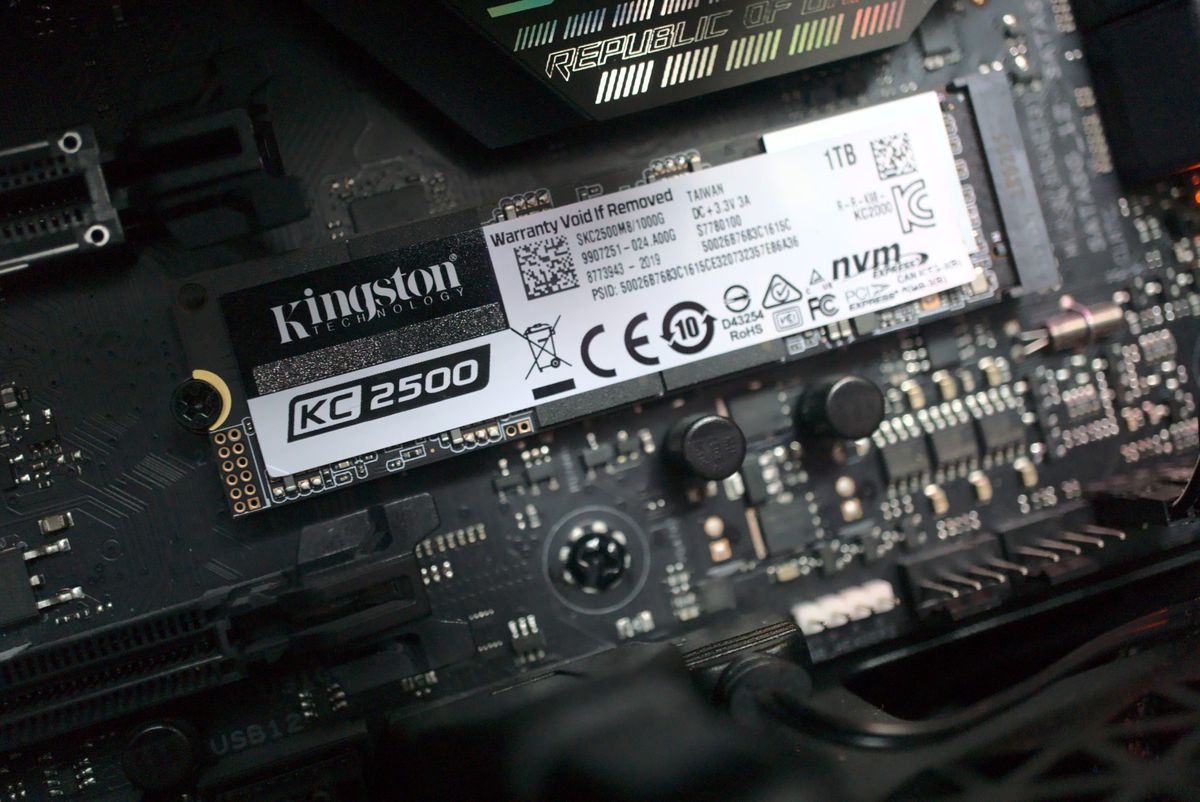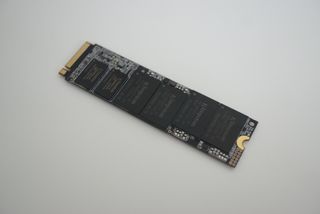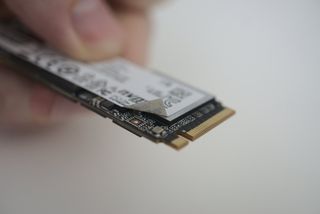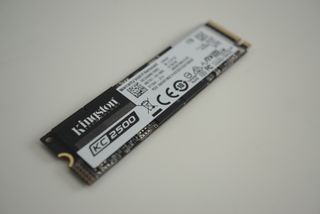Kingston KC2500 review: Fast speeds and self-encryption make this a solid SSD
Kingston's new KC2500 series offers great PCIe 3.0 performance with the ability to 256-bit self-encrypt.

Kingston is a big player in the portable storage space, and while the company hasn't made a huge dent into the SSD space, that could change with the latest KC2500 series of PCIe drives. Boasting speeds of up to 3,500 MB/s and 2,900 MB/s for read and write, respectively, these little SSDs are quick enough to keep up with the competition on paper.
The KC2500 also has some impressive endurance numbers, but how does it perform against the likes of Seagate, Western Digital, Samsung, and others in synthetic benchmarks and the real-world? It's important you use the best SSD for PC, and this is exactly what this review will walk you through with the KC2500.

Starts from $75Bottom line: Kingston created a compelling SSD that will fit right in with a gaming rig or enthusiast workstation.
For
- High endurance
- Great transfer speeds
- Good performance all-round
- XTS-AES 256-bit encryption
- Good software support
Against
- Not as fast as PCIe 4.0
- Little pricey per GB
Kingston KC2500 offers rapid transfer speeds

Kingston makes some excellent storage solutions and its SSD line-up is pretty good also. While it's not quite as flashy as Samsung and other big players in the storage space, one cannot overlook Kingston for functionality. The KC2000 series was pretty good and the new KC2500 that replaces it takes the PCIe SSD to a whole new level.
Kingston's KC2500 PCIe SSDs are rapid fast and built to last.
The major difference between the older and newer generation is the speed. The KC2500 (in 1TB and 2TB capacities) can hit read and write speeds of up to 3,500 MB/s and 2,900 MB/s, respectively. That's mightily impressive for PCIe 3.0 SSDs and put the KC2500 right up there with the best on offer for the interface. We reviewed the excellent Sabrent Rocket to showcase PCIe 4.0 speeds.
These higher transfer speeds allow Kingston to effectively keep up with the competition, but the company hasn't forgotten about endurance. Even the 250GB capacity SSD is rated at 150 terabytes written (TBW), which is far more than the average PC owner will use before replacing. That makes the KC2500 rather appealing since it's both fast and well-built.
| Category | 250 GB | 500 GB | 1 TB | 2 TB |
|---|---|---|---|---|
| Controller | SMI 2262EN | SMI 2262EN | SMI 2262EN | SMI 2262EN |
| Form factor | M.2 2280 | M.2 2280 | M.2 2280 | M.2 2280 |
| Seq Read | 3500 MB/s | 3500 MB/s | 3500 MB/s | 3500 MB/s |
| Seq Write | 1200 MB/s | 2500 MB/s | 2900 MB/s | 2900 MB/s |
| Endurance | 150 TBW | 300 TBW | 600 TBW | 1200 TBW |
| Warranty | 5 years | 5 years | 5 years | 5 years |
| Price | $75 | $128 | $226 | $437 |
| $ per GB | $0.30 | $0.26 | $0.23 | $0.22 |
The endurance rating goes up by 150TBW for each 250GB in capacity, topping out at 1,200TBW for the 2TB drive. There's also a five-year warranty included with each drive, which will cover you should you encounter issues before hitting the TBW rating. Pricing is where things get a little tricky since the series is not massively expensive, but you will notice a drop in $ per GB compared to other drives.


The Silicon Motion 2262EN controller is a great choice for Kingston, matching it with 96-layer 3D TLC NAND. All of these magical electronics are hidden beneath a single sticker on the PCB. The board itself is black and better than any blue PCIe SSD you may find on the market, but the sticker isn't copper-backed.
Get the Windows Central Newsletter
All the latest news, reviews, and guides for Windows and Xbox diehards.
It also hides everything that makes this SSD perform well in tests. In benchmarks, the KC2500 1TB was able to hit 3,500MB/s as advertised, though the writing was a little short at 2,850MB/s. Like most PCIe SSDs on the market, the KC2500 will get a little toasty when under intense loads. I managed to spot readings of upwards of 75 degrees Celcius (167 Fareinhegiht). No thermal throttling was detected.
If you happen to need an SSD to store sensitive data, the KC2500 is up to the task, being a self-encrypted drive. What exactly does this mean? The SSD can use XTS-AES 256-bit hardware-based encryption. It's TCG Opal 2.0 compliant, allowing the drive to be used with solutions like Symantec, McAfee, and WinMagic, as well as Microsoft eDrive.
What you might dislike about the Kingston KC2500

You're definitely paying for the improved transfer speeds with the KC2500, as well as all the other features like the self-encryption. If you're not too fussed about having a super-fast PCIe 3.0 SSD, you may want to look elsewhere. For the KC2500, the 250GB will cost you $0.30 per GB, while the 2TB version will charge $0.22 per GB.
That doesn't sound too bad, but if I were to compare that against the Sabrent Rocket, a PCIe SSD with similar specifications (aside from the self-encryption, of course), things don't look so good. The 500GB Rocket from Sabrent costs just $0.14 per GB and the incredible 8TB drive is $0.25 per GB.
It's easy to find PCIe SSDs with copper stickers to help aid with heat dissipation, but that's not what Kingston had planned for the KC2500. The sticker is simply a sticker and it's probably better for you to remove it if your motherboard comes with an M.2 slot heat spreader.
Should you buy the Kingston KC2500?

Kingston did a good job with the KC2500. It's a sure improvement over the older KC2000 series and you can quite easily hit marketed read and write speeds of up to 3,500MB/s and 2,900MB/s. The addition of XTS-AES 256-bit self-encryption is a nice touch, especially if you can take advantage of such functionality.
An issue with the SSD range is the price, particularly price per GB. It's difficult to justify the hike when looking at $0.30 for the 250GB version alone at current prices. There's also the lack of any copper on the sticker, which is a shame even though the improvements to temperature readings are minimal.
Still, if you're in the market for a new SSD that's both fast, will last way beyond the life of other PC components you'll likely replace first, the Kingston KC2500 is a good buy.

Rich Edmonds was formerly a Senior Editor of PC hardware at Windows Central, covering everything related to PC components and NAS. He's been involved in technology for more than a decade and knows a thing or two about the magic inside a PC chassis. You can follow him on Twitter at @RichEdmonds.